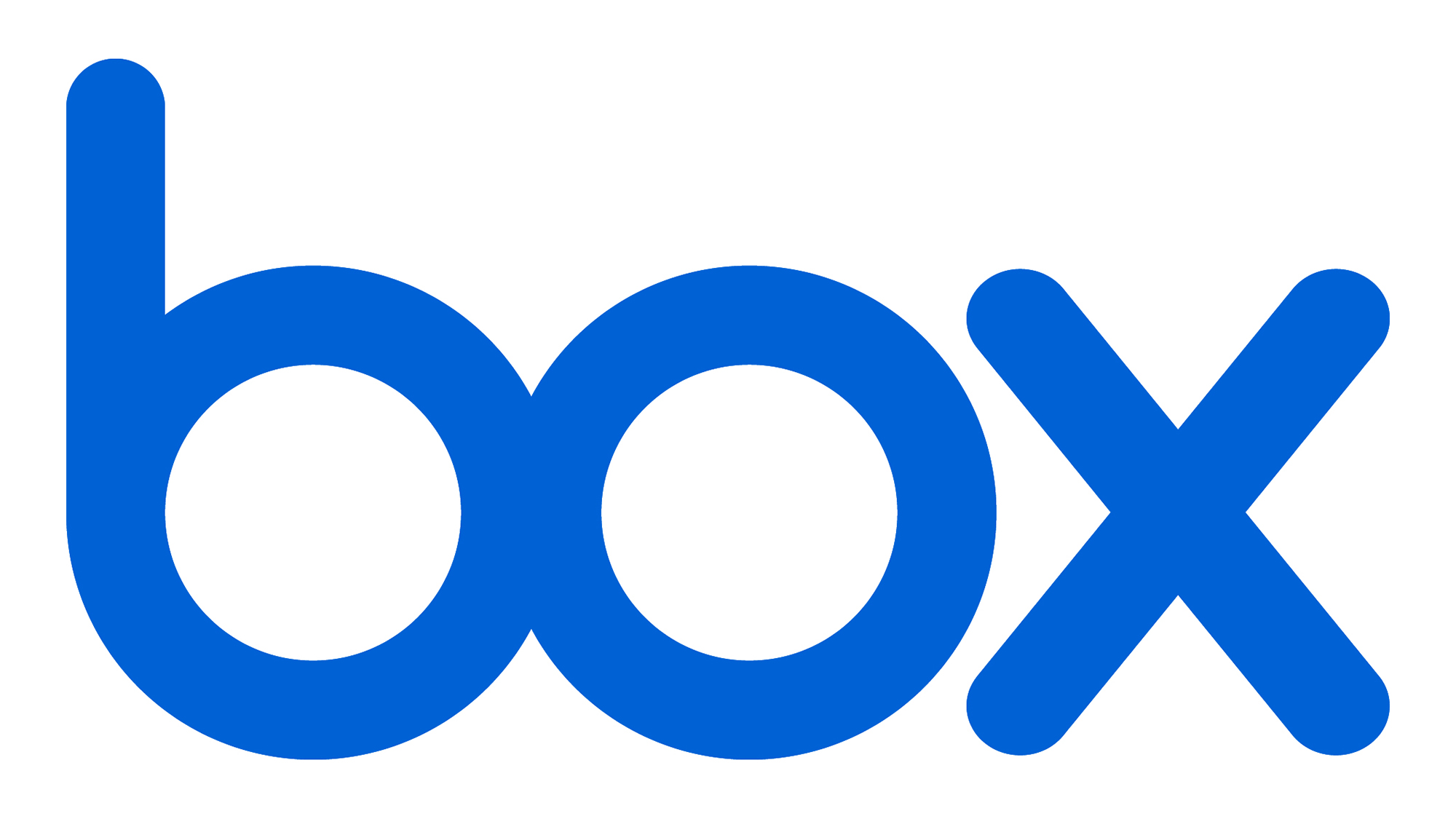Box Business & OneCloud review
Can Box's business offerings beat its cloud storage rivals?

-
+
Unlimited storage; Precise admin controls and wide third-party support
-
-
Expensive

Enterprise-grade cloud storage is the easiest way for your team to share, collaborate on, and securely store documents and other files. Box for Business is very clear about its security and data protection status, which is particularly welcome for British and European companies who wish to use cloud storage and online collaboration. Additionally, Box’s OneCloud app ecosystem and open API not only means that there are a wealth of third-party tools that integrate with it, but also provides enterprises with the means to connect their own in-house apps and services with the Box cloud.
Features
Box Business is designed for three or more users and gives you unlimited storage. A fine-grained admin console allows you to add and import users, assigning each their own amount of storage space, defining exactly which folders they can access, and adding them to groups that make it easy to roll out and change access and security settings for multiple users at once. Box for Business also supports Active Directory and Single Sign On via identity providers such as Okta, so you can transfer your Active Directory users and their logins.
Users can see their own files, and folders shared with them, and the account administrator has access to every file and folder uploaded by any user. When it comes to assigning users and groups with access to specific shared folders, you can give them a variety of different permissions. Owners, co-owners, and editors can upload, download, edit, create a shareable link and delete files from a folder they have access to. Viewer Uploaders can do everything except delete files; Previewer Uploaders can only preview and upload content; Viewers can download, preview and create links for files, while Previewers and Uploaders can only preview and upload files respectively. When it comes to link sharing, you can disable the feature entirely, limit it so that files can only be shared between people in your company, password-protect shared files, set expiry dates on those shares, and prevent them from being downloaded by restricting external viewers to only being able to preview files online.
The Box desktop application creates a local sync directory on your hard disk. Anything saved there will be automatically synchronised with your online storage on Box. Unlike Google Drive or Dropbox, your local files are uploaded, but your online files aren’t automatically downloaded to your sync folder. Given that each user has potentially unlimited storage for their account, the reasons for this are obvious. However, users can choose specific folders to sync to their PCs via the web interface.
Box’s web interface and mobile apps allow users to browse, upload, and - assuming you’ve not disabled the feature - download files. Unlike the vast majority of sync services, Box also provides FTP and SFTP access to your account, although this is recommended for initial bulk uploads and migration from other storage rather than regular use. You can upload any file type to Box – the only restriction that applies to Business accounts is a 5GB file size limit.
Security
Although its three data centres are located in the US, Box is signed up to the Safe Harbor framework, which means that the company complies with EU Directive 95/46/EC on data protection. Because of this, you’re legally allowed to keep customer and HR data on the service, even though its servers are physically located outside Europe.
The service uses standard 256-bit SSL to transfer data, and stored data is secured using 256-bit AES encryption. You can set your own requirements for your users’ passwords, for example requiring regular password resets or a certain number of special characters or numbers. Box has a 50-iteration version history, and a trash folder that allows you to retrieve deleted files. The folder is by default purged every 30 days, but this can be adjusted to between 7 and 90 days. You can also change your trash folder settings so that only admins can manually purge it.
There plenty of other monitoring and notification features. You can have Box email users when someone views, downloads, or uploads content in one of their folders, for example. The system also keeps full reports of every interaction with any file, as well as tracking which links have been shared and which external addresses have been authorised to collaborate on your files.
OneCloud and App Integration
Box’s OneCloud app directory sets it apart from most of its rivals in the world of online storage and synchronisation. Although Google Apps is the most obvious alternative, with its strong Android integration and large collection of third-party apps, the available range of business-oriented web apps is limited once you go beyond Google’s own.
Box’s official apps also provide integration with Microsoft Office, and business users can easily integrate Gmail or Google Apps mail with the service, allowing them to send Box content to their email address, adding a “Send with Google Apps mail” option to Box’s right-click menu.
Even more impressive is the massive level of third-party app and service support. Box uses its OneCloud app directory to promote and makes it easy to find apps, software and services that work with it. If you’re using Box on your phone or tablet, the built-in OneCloud directory will send you to the relevant app store entry for each compatible app in the list. From there, you just have to install them, and they’ll immediately be able to communicate with Box via its app.
The browser-based Apps screen gives you a full list of applications that support Box on all platforms, from browser plug-ins to desktop applications for Windows and Mac OS X. Many of these are free, although plenty of paid-for services also integrate with Box. Some platforms are better supported than others - there aren’t many Windows Phone apps on the list, for example.
We were particularly pleased to find that we could seamlessly edit Word files online by linking Box to a free Google Drive account: Google Docs is opened in a new window, and all your edits are saved to the version of the document stored on Box. Third-party apps and services that support Box include Documents to Go for Android and iOS, the GoFormz PDF form filler for iOS, direct scanning and printing for a wide range of smart MFPs, Mindmeister mind maps, the DocuSign e-signature system and Zendesk support ticket management.
Our only complaint is that, although it’s searchable, the sheer size of the app directory can make it something of a chore to trawl through, particularly on the website. To help you find your way and choose between the multitude of apps, Box has recently launched its Assured Apps mark, indicating apps which have been vetted by the company as stable and enterprise-ready.
Finally, if none of the apps in the Box OneCloud ecosystem meet your requirements, the Box Platform Developer portal provides an API and detailed tutorials allowing you to access your business’s Box account from your own apps and services.
Pricing
Box for Business costs £11 per user, per month, and is set at a minimum of three users, so you’ll pay at least £33 per month. In this instance, a user is anyone who you invite to collaborate on a document or folder, whether they’re part of your company or not. At the end of the monthly billing period, your subscription will be adjusted to account for additional users you’ve added. Box’s other business-oriented plans includes Box Business Plus and Box Enterprise. These provide a wider range of options, particularly for large business, including extra mobile security controls, custom branding and terms of service of your users, and the ability to add external users without being billed extra for them. The pricing for these services depends on your business’s specific requirements and number of users, so they’re quoted on a case-by-case basis. For those with more modest requirements, the Box Starter subscription caters to businesses with up to 10 users and costs £3.50 per user, per month.
Overall
The online sync market is hugely competitive. For enterprise users, particularly in the SMB world, the service to beat is Google Apps, which gives each of your users 30GB of space for £3.30, in addition to a range of features, from MDM and email to web hosting, but doesn’t come close to matching Box’s precision admin controls. SugarSync for Business, with its 1000GB of shared storage and hugely flexible local directory syncing comes at a more closely comparable $55 (£36) a month for three users, but doesn’t have Box’s wide support from third-party apps and services. Above all, Box differentiates itself from its competitors is through the broad OneCloud app ecosystem and by providing the most highly configurable business sync service we’ve seen. The ease with which admins can control the access of various users and ground to specific folders is outstanding. We also welcomed the FTP and SFTP support, and detailed logging and reporting, while Box’s unlimited storage will certainly prove welcome over long-term use. If security, integration with a wide range of devices and services, and high-capacity storage are key to your business sync requirements, then Box is probably what you’re looking for.
Get the ITPro daily newsletter
Sign up today and you will receive a free copy of our Future Focus 2025 report - the leading guidance on AI, cybersecurity and other IT challenges as per 700+ senior executives
K.G. is a journalist, technical writer, developer and software preservationist. Alongside the accumulated experience of over 20 years spent working with Linux and other free/libre/open source software, their areas of special interest include IT security, anti-malware and antivirus, VPNs, identity and password management, SaaS infrastructure and its alternatives.
You can get in touch with K.G. via email at reviews@kgorphanides.com.
-
 Reports: White House mulling DeepSeek ban amid investigation
Reports: White House mulling DeepSeek ban amid investigationNews Nvidia is caught up in US-China AI battle, but Huang still visits DeepSeek in Beijing
By Nicole Kobie Published
-
 Google faces 'first of its kind' class action for search ads overcharging in UK
Google faces 'first of its kind' class action for search ads overcharging in UKNews Google faces a "first of its kind" £5 billion lawsuit in the UK over accusations it has a monopoly in digital advertising that allows it to overcharge customers.
By Nicole Kobie Published
-
 Darktrace unveils tailored AI models with a twist for its cybersecurity agent
Darktrace unveils tailored AI models with a twist for its cybersecurity agentNews Darktrace has announced new AI models for its agentic AI security tool, but it's taken a novel approach to tackle hallucinations.
By Rory Bathgate Published